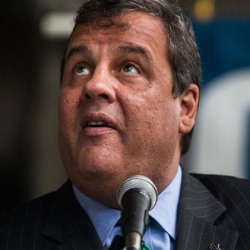
Gov. Chris Christie suggested casinos would need to pay PILOT taxes for 7 years, but that is not in the bill’s wording.
If the state’s voters approve North Jersey casinos in the November election, then it appears that Atlantic City casinos are going to be able to opt out of a PILOT bill which is still in the works. That is what the Press of Atlantic City’s Christian Hetrick reported this week.
Later, the reporter spoke with Gov. Chris Christie, who suggested the PILOT bill would include such a clause. Gov. Christie and Democratic lawmakers appear to have a discrepancy on the time frame for the opt-out clause, but it appears the PILOT legislation is going to have that stipulation.
In January, Christie had vetoed an emergency economic bill for Atlantic City, so he might be willing to play hardball on other AC-related recovery bills.
The New Jersey PILOT Bill
The PILOT bill has long been discussed. The bill exists to relieve the state of costly tax appeals by the Atlantic City casinos. The PILOT bill would mean casinos could not appeal their yearly revenue and property taxes to a state court.
Instead, the casinos would pay a fixed rate each year for the next 10 years. The bill is supposed to provide the casinos with a clearer financial picture, so they would be able to plan their business operations. Also, they and the state would save money on the yearly ritual of the casino appeals process.
The problem with such a bill is it fixes in payments in an ever-changing gaming environment. The New Jersey legislature is well on its way to placing an North Jersey casino referendum on the ballot this November.
North Jersey Casinos
The referendum asks the voters of New Jersey whether they want to approve two brick-and-mortar casinos in the North Jersey region. Neither casino could be built within 70 miles of Atlantic City. Most assume the destination resorts will be built in Jersey City and the Meadowlands, to draw gamblers from New York City.
If so, then the revenues of Atlantic City casinos might drop significantly. Also, property values in Atlantic City might drop. With a PILOT bill in place, casinos might be paying taxes inflated with current conditions being considered — not the realities of 5 or 10 years from now. Thus, casinos would be able to opt-out of the PILOT plan, if new casinos were built in the north of the state.
Press of Atlantic City
Christian Hetrick wrote in the Press of Atlantic City, “A bill intended to prevent Atlantic City casinos from appealing their property taxes would allow those casinos to opt out of the financial agreement if casinos open in North Jersey. The rescue package, the so-called PILOT bill, bars casinos from appealing their property taxes and allows them to make fixed payments in lieu of property taxes for 10 years.”
Hetrick continued, “The bill passed the Senate by a 34-3 vote on March 14. But language added to the bill gives casinos the option to withdraw from the financial agreement and become subject to regular property taxation, if casinos open in North Jersey. That would put Atlantic City at risk of facing more casino property tax appeals that damaged the city’s finances over the years. The paragraph allowing the opt-out was not in the bill when first introduced, but was added after an amendment from the Senate Budget and Appropriations Committee.”
Gov. Christie’s Interpretation of the Bill
When Gov. Christie was asked about the bill, he seemed to give an answer about a more rigid PILOT schedule, indicating casinos could not drop out of the PILOT plan for 7 full years. Christie said, “It’s seven years of a pilot and then they can opt out. Let’s get seven years of stability in Atlantic City taxes first, and then we’ll worry about what they can do seven years from now.”
In the current version of the plan in the legislature, no mention of a 7-year stipulation exists. Thus, lawmakers appear to be at odds with the governor on their interpretation of the law.
It is unknown whether Chris Christie was misinformed about the proposed legislation, or whether he was making a statement on his vision for the plan. Governors are not directly involved in voting on such a bill, but their signature is needed to sign a bill into law, so they often have stipulations and demands they attach to their approval.
Odds of Referendum Passing
Retired state assemblyman and state Superior Court Judge Steven Perskie reminded New Jerseyans that referendums are not always a slam-dunk. Perskie reminded people of a 1974 referendum on casino gambling was voted down by New Jersey voters.
Perskie mentioned that the perception at the time — and it was likely a correct one — that the casino industry was too closely associated with the American mafia. Given that the last 5 mayors of Atlantic City at the time had gone to jail for corruption, people were leery to legalize casinos in such a city. The real surprise might be that a similar refendum passed two years later.
